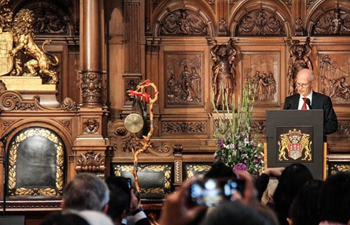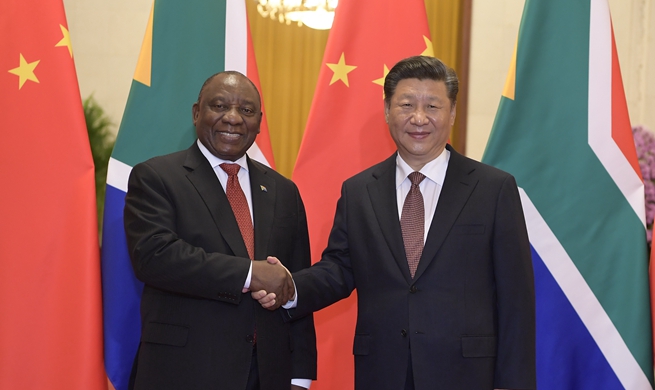NAIROBI, Sept. 2 (Xinhua) -- Kenyan manufacturers on Sunday decried a move by the government to impose a 16 percent value added tax (VAT) on price of fuel, saying it will increase the cost of living and slow growth of business in the country.
The Kenya Association of Manufacturers (KAM) said the new fuel levy on all petroleum products -- petrol, diesel and kerosene -- will not only negatively affect the industry but also overburden Kenyans.
"With these unfavorable fiscal trends, coupled with shrinking economic performance, the future is rather bleak as world oil prices are on increase to the current average of 68.8 U.S. dollars per barrel from 50 dollars three years ago," KAM said in a statement issued in Nairobi.
The government has instructed oil dealers to start charging VAT on all petroleum products at a rate of 16 percent on all transactions, starting from Sept. 1.
This was despite a vote by lawmakers on Thursday urging a delay in the introduction of 16 percent tax on petroleum products to 2020, saying it might have a major impact on the economy.
The legislators said the amendment was meant to cushion Kenyans from the high cost of living as prices of basic commodities including transport fares were to rise.
The tax was first introduced on petrol, diesel, kerosene and jet fuel in the VAT Act of 2013, with a three-year grace period.
By charging the 16 percent VAT, the industrialists said, manufacturers are subject to an increase in the cost of transportation of raw materials and finished products, and the increase in the cost of power, among other overhead costs.
They said the business environment in Kenya is increasingly becoming cost-disadvantaged and a great disincentive for foreign direct investment.
"To stay afloat, business will have to make very hard and drastic decisions of whether to shoulder the extra cost or pass over the tax burden to already overburdened consumers in order to meet their overhead costs," KAM said.
The energy regulator has released new fuel prices that reflect the 16 percent VAT as ordered by Treasury Cabinet Secretary Henry Rotich.
Under the new rates, Nairobi motorists will now pay 1.23 U.S. dollars while those in Mombasa will pay 1.25 dollars according to a statement from the Energy Regulatory Commission (ERC) released on Saturday.
The ERC directive will now see diesel retail at 1.15 dollars while a liter of kerosene will cost 0.97 dollars in Nairobi.
The Association of Matatu Operators, an association of public passenger vehicle operators, has already resolved to increase fares starting Monday.
The association's chairperson, Jimal Ibrahim Hassan, said the move was prompted by the new fuel levy announced by the ERC.
Matatu fares will now increase by between 0.10 dollars to 0.30 dollars depending on the routes, said Hassan.
Deputy President William Ruto said the government will work with Parliament to resolve the rising fuel cost in the country.
Ruto said a balance would be created so as not to burden Kenyans but also not put a brake to the government's development plans, noting that amicable solution will be found to cushion the public against any price increases.
"The executive will be meeting parliament so as to address the concerns raised by Kenyans. As a matter of fact, a solution would be reached," he said on Sunday during a prayer service in Nairobi.













